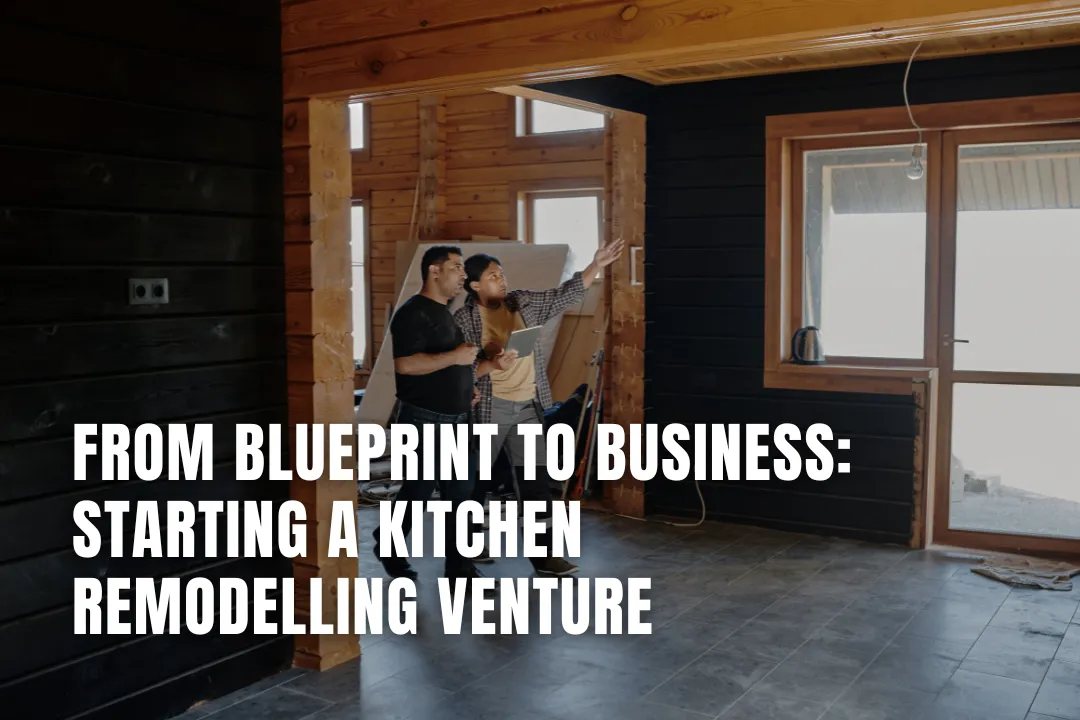
In today’s real estate and home improvement market, one area continues to stand out kitchen remodeling. As homeowners demand more functional, stylish, and technologically advanced kitchens, the remodeling industry has evolved into a high-potential venture for aspiring entrepreneurs.
This article will guide you through why kitchen remodeling is a viable business idea, the essential steps to start your venture, the challenges you may encounter, and strategic ways to succeed.
Kitchens have transitioned from being purely functional spaces to the heart of the home. They're used for cooking, entertaining, working, and even socializing. As a result, homeowners are increasingly looking to remodel outdated kitchens to match their evolving lifestyle needs.
From expanding counter space to integrating smart appliances, kitchen remodeling offers endless customization opportunities making it a sought-after service across diverse residential markets.
The kitchen is one of the most valuable areas in a home. Because of this, remodeling it is often considered a worthwhile investment. Many homeowners are willing to spend significantly, ranging anywhere from $20,000 to over $100,00, depending on the size, materials, and level of customization. This creates substantial earning potential for skilled professionals who offer quality service and finish.
Whether due to new homeownership, lifestyle upgrades, or aging interiors, the demand for kitchen remodeling remains consistent. Interior styles and trends evolve quickly, and homeowners often seek updates to stay current or improve property value, keeping the industry thriving.
Before launching your business, understand the landscape. Research your competition, average pricing in your target market, and what clients are looking for in remodeling services. Knowing the difference in expectations between urban homeowners and suburban families, for example, can help tailor your offerings more effectively.
Establish your business legally this typically involves forming an LLC or corporation and applying for any necessary licenses. Depending on your region, a home improvement contractor license or similar certification may be required.
Kitchen remodeling is rarely a solo effort. Surround yourself with qualified professionals such as carpenters, electricians, plumbers, and designers. Whether you hire in-house or subcontract, make sure your team is experienced and compliant with building codes and regulations.
Clients today want more than just functional upgrades they want beautifully designed, personalized spaces. Offering design-build services (where your company handles both design and construction) can give you an edge. Collaborating with interior designers to produce 3D renderings, mood boards, and sample palettes can enhance your client experience and help close deals faster.
Ensure your business has all necessary insurance, including general liability and workers' compensation. Depending on your jurisdiction, certain remodeling jobs may also require permits. Being compliant protects both you and your clients.
Create a polished, mobile-friendly website that highlights your portfolio and client testimonials. Focus on SEO so clients can easily find you through searches like “modern kitchen remodeler” or “custom kitchen renovation company.” Use platforms like Instagram, Pinterest, and Houzz to showcase your work visually.
Many remodeling projects involve older homes with outdated infrastructure. Navigating around old plumbing, gas lines, or electrical systems can be tricky. Understanding how to work creatively within these limitations is key to a successful remodel.
Building codes can vary widely from one region to another. Some areas may have strict rules about what can or cannot be changed, especially in multi-unit buildings or older properties. Keeping up with regulations ensures that your work passes inspections and avoids legal issues.
Remodeling is a high-touch, client-centered business. Homeowners expect clear communication, detailed project timelines, and transparency on costs. A missed deadline or unexpected expense can damage your reputation, so communication and project management must be top priorities.
Instead of trying to be everything to everyone, focus on a niche. Whether it's compact kitchens for city apartments, luxury spaces for high-end homes, or sustainable designs using eco-friendly materials, specialization helps define your brand and attract ideal clients.
Large remodeling projects can be costly. Partnering with third-party financing providers allows clients to pay over time, making your services accessible to a broader audience and potentially increasing the size and scope of projects.
Reputation is everything in home improvement. Encourage satisfied customers to leave reviews on platforms like Google, Yelp, or Houzz. Share before-and-after photos and client testimonials on your website and social media to build trust and attract leads.
Collaborate with real estate agents, interior designers, and developers who can refer clients your way. Building relationships in the home improvement and real estate ecosystem can lead to a consistent flow of projects.
Emerging trends are reshaping how kitchens are designed and built. Some of the innovations gaining traction include:
Staying current with these trends and integrating them into your services can set your business apart and attract forward-thinking clients.
Starting a kitchen remodeling business is a journey that blends creativity, craftsmanship, and customer service. While challenges exist, especially in managing expectations and staying compliance, this industry offers exceptional opportunities for growth and profit.
With a clear business plan, the right team, and a commitment to excellence, you can turn your remodeling passion into a sustainable and successful venture. The key is to listen to your clients, stay ahead of trends, and never compromise on quality. Whether you're working on small upgrades or full kitchen overhauls, every project is a chance to build trust, reputation, and long-term success. If you're looking to establish yourself as a trusted house remodeling company, focusing on kitchens is a smart and rewarding place to start.